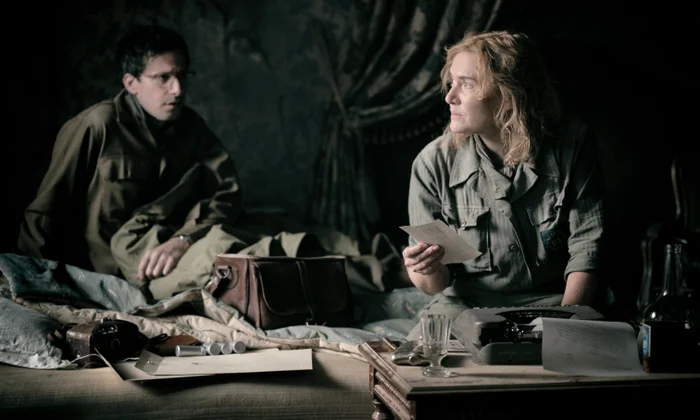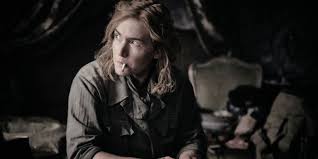🎬 Lee (2024)

Lee (2024) Review
Directed by Ellen Kuras, Lee (2024) is a poignant and visually captivating biographical drama that delves into the life of Lee Miller, an iconic war correspondent and trailblazer in the realms of photography and journalism. Featuring a transformative performance by Kate Winslet, the film sheds light on Miller’s remarkable journey from a fashion model to a fearless chronicler of World War II. Lee is both a tribute to her legacy and an exploration of the personal struggles behind her groundbreaking achievements.
Plot Overview
The film traces Lee Miller’s life through pivotal moments, beginning with her early career as a model in New York and Paris during the 1920s and 1930s. Disillusioned with the superficiality of the fashion world, Lee (Kate Winslet) reinvents herself as a photographer, becoming an apprentice to surrealist artist Man Ray (Alexander Skarsgård) and eventually establishing her own career.
The narrative shifts focus to Lee’s role as a war correspondent for Vogue during World War II, where she documents the atrocities of the conflict, including the liberation of concentration camps. The film interweaves her professional accomplishments with her personal struggles, including her turbulent relationships, her battles with post-war trauma, and her quest for artistic and personal identity.
Performances
Kate Winslet delivers a career-defining performance as Lee Miller, capturing the character’s complexity with grace and intensity. Winslet’s portrayal brings depth to Miller’s fearless determination, vulnerability, and artistic brilliance, offering a multifaceted look at a woman who defied societal norms to pursue her passions.
The supporting cast enhances the narrative with strong performances, including Alexander Skarsgård as Man Ray, whose relationship with Lee adds layers of emotional tension and creative synergy. Marion Cotillard’s nuanced portrayal of a fellow war correspondent and Andrea Riseborough’s role as Lee’s confidante provide additional emotional resonance.
Direction and Visuals
Ellen Kuras, a cinematographer-turned-director, brings her expertise in visual storytelling to Lee. The film is a visual masterpiece, with striking cinematography that captures both the glamour of pre-war Europe and the stark realities of war. The use of light and shadow underscores the dualities in Lee’s life—her artistic brilliance and her emotional turmoil.
The recreations of Miller’s iconic photographs are particularly impactful, seamlessly integrating her perspective as a photojournalist into the cinematic narrative. Kuras’ direction emphasizes the power of imagery in documenting history, reflecting the transformative impact of Lee’s work.
Themes and Writing
Lee explores themes of identity, resilience, and the moral complexities of war. The screenplay, written by Liz Hannah, offers a balanced portrayal of Miller’s professional and personal life, highlighting her contributions to history while delving into her inner struggles. The film’s dialogue is sharp and introspective, capturing the essence of a woman ahead of her time.
The juxtaposition of Lee’s glamorous past with the harrowing realities of war underscores the film’s exploration of transformation and survival. Her journey is framed not only as a personal evolution but also as a testament to the power of art and journalism in confronting humanity’s darkest moments.
Strengths and Weaknesses
The film’s greatest strength lies in its ability to humanize Lee Miller without diminishing her achievements. Winslet’s performance, combined with Kuras’ direction and the film’s striking visuals, creates a compelling and immersive narrative.
However, the film occasionally struggles with pacing, particularly in its transitions between Lee’s personal and professional life. Some secondary characters, while well-acted, feel underdeveloped, leaving certain relationships and subplots less impactful than they could be.
Conclusion
Lee (2024) is a powerful and visually stunning biopic that celebrates the life and legacy of Lee Miller. With a commanding performance by Kate Winslet and Ellen Kuras’ masterful direction, the film captures the essence of a pioneering artist and journalist who redefined the boundaries of her era.
Though it may falter in its pacing, Lee is a profound exploration of identity, art, and the resilience of the human spirit. For audiences seeking a moving and thought-provoking cinematic experience, Lee offers a fitting tribute to an extraordinary woman whose work continues to inspire.